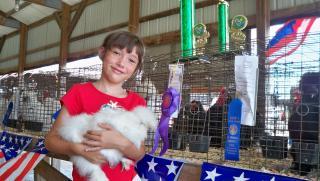Quote:
Now, of course, I don't show, but in MY mind, if some "better (show) quality" silkies are THAT delicate, it sounds like nature's way of eliminating weakness to me. I personally wouldn't breed birds that were THAT susceptible to stress and such, because I wouldn't want those traits passed down to their offspring. But thats JMHO.
I have silkies from some top show breeders, and I have some that are pet quality, but none of them are from hatcheries - and I've never had ANY of them die from things previously mentioned here. In fact, mine lived outside thru two back to back blizzards last winter, and then another month of almost 4 feet of slowly melting snow in their runs - none of my chickens (including the silkies) were happy about it, but they suffered no ill effects, and they laid eggs the entire time. Plus, my silkies have endured 95+ degree heat, oppressive humidity, severe thunderstorms, drought, etc... this past summer, right along with my other breeds - so, if silkies were as delicate as some say, there's no way any of mine would still be living. Of course, I have their houses and runs situated in the shade and as protected from the weather as they can be, but here, there is no way to *completely* shelter them from the elements - that is, unless they live indoors, which just is NOT an option here.
As far as lice and mites are concerned, I've never really had much of a problem with them in any of my birds. Once in a while, I give my crested breeds a shot of Frontline spray if I see any signs, but thats it. I don't use DE or any dust of any type on the birds themselves - I use Stall Dri in my coops mixed with the pine bark mulch on the floor and mixed with the pine shavings in their nest boxes, and they all have access to the ground in their runs. Even the silkies.
So, I find that my silkies are as sturdy, if not sturdier, than any other breed I have here. And honestly, if they weren't, I wouldn't have them as part of my flock.
Just my two cents...



